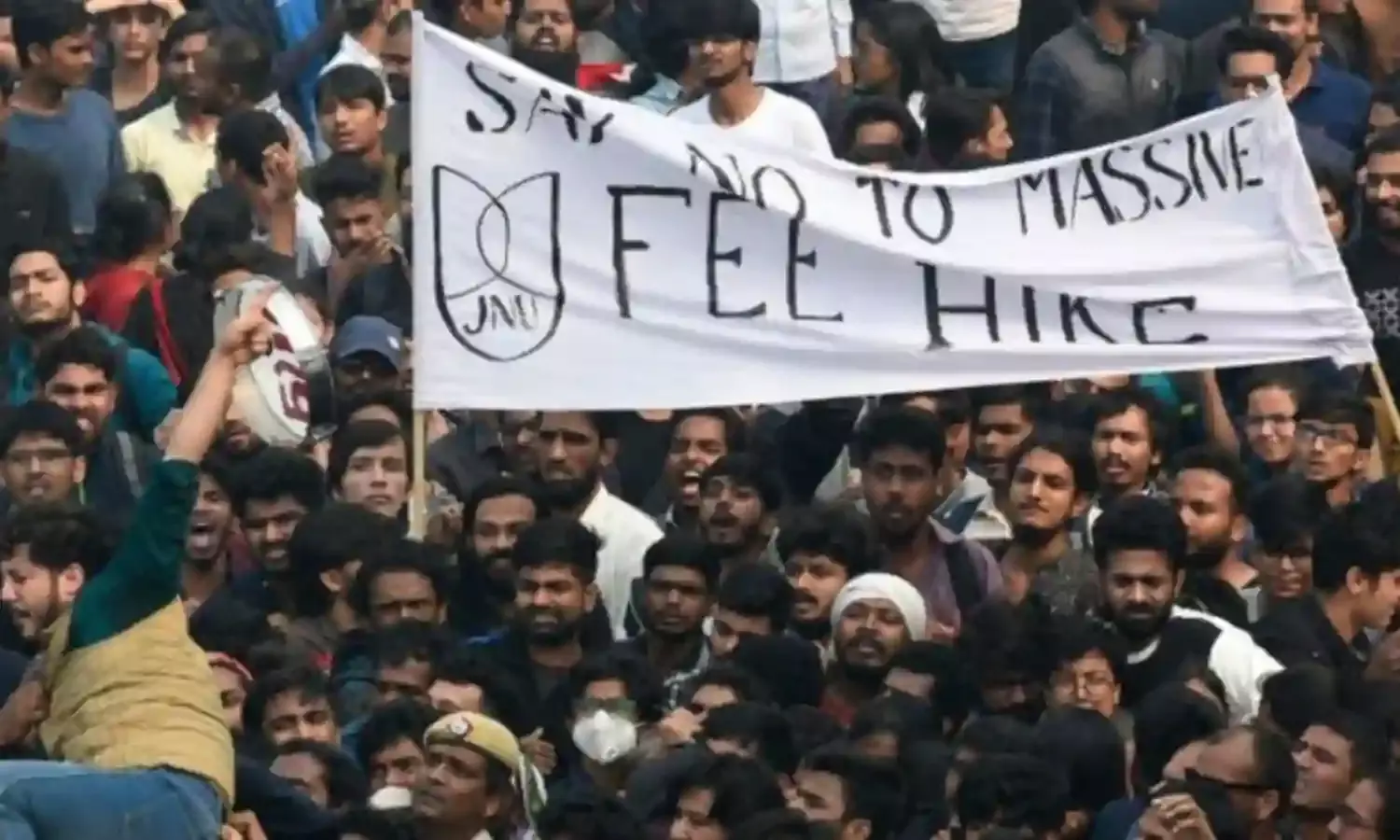What Does Challenging a University Mean in Today’s Democracy?
This time, solidarity and support for JNU spoke stronger. Spoke further.;

The superficial, orchestrated narrative of economic growth in India is ferociously being criticised as grassroots realities project the naked truth.
This bitter sense of disappointment, even disillusionment, of darker days ahead, is now palpable in the education sector as well.
As the state targets educational institutions, a freeing and empowering ideal of education is being corroded away in yet another episode at the Jawaharlal Nehru University.
The media, with its old fashioned language and compromised ideas, has fuelled antagonism towards this university, which once educated large numbers of critically thinking scholars, bureaucrats and journalists.
But this time, solidarity and support for JNU, which has endowed a lifeline to students all across India, spoke stronger. Spoke further.
Following a 16-day agitation by JNU students, the administration has decided to partially roll back an unprecedented hike in hostel fees, which would have rendered education unaffordable to most students.
It says it will also provide financial assistance to students from lower-income families.
How will the decision to float financial assistance be structured? In what timeframe will this assistance be executed?
The decision was taken during an Executive Council meeting on Wednesday evening.
It appears to be a cursory, cosmetic response by the EC to the growing protests, both online and within the campus, which has seen paramilitary soldiers stationed there in the past month.
The absence of at least eight members from this EC meeting questions its very legitimacy.
A hike in hostel fees (especially room rent) should entail better living facilities within the hostel dormitories, along with meals. Yet unfortunately, JNU’s old hostels like Tapti, Sabarmati, etc. are architecturally designed in close-fitted, claustrophobic compartments. The double-seaters cannot accommodate two roommates.
Then there is the revised hostel manual, which has still not been discussed by the students’ union. It is unclear whether, after today’s meeting the manual will include new rules on dress codes, curfew timings, and permissions to enter or even exit the campus.
Vice-Chancellor Mamidala Jagadesh Kumar has intently been avoiding any meeting with students or teachers.
The ‘nationalist’ rhetoric of big money and big guns continues to depict JNU as an ultra-left campus. Quite often these appeals are pitched to ‘taxpayers’. Historical analysis is still mellow on how such propaganda coincides with the advent of a new and vicious politics.
Perhaps the country forgets how every year, thousands of students from very deprived corners of our society can dream of a future only because of a university like JNU, which supports fluid learning, subsidised education, and perhaps a real-world ideal of social justice and democratic change which is now becoming obsolete.
There were always the stories. Of someone who was a peon’s son. Someone who worked in a call center to even earn the 2,000 rupee fee to pay for hostel admission. Someone who was able to fight against patriarchal marriage and dowry because JNU gave them the courage.
Not only minorities, who have become invisible, even in the imagined communities within India, but also the anointed elites.
How long the students and teachers will continue to fight these policies and this abuse, remains unclear. How long will they be permitted to?
Every day there’s a new challenge, a new agony to curtail their work and swallow their energies.
But then, every JNUite knows the slogan, ‘When politics decides everything in your life, decide what your politics should be.’
The fight will go on. We will win.

